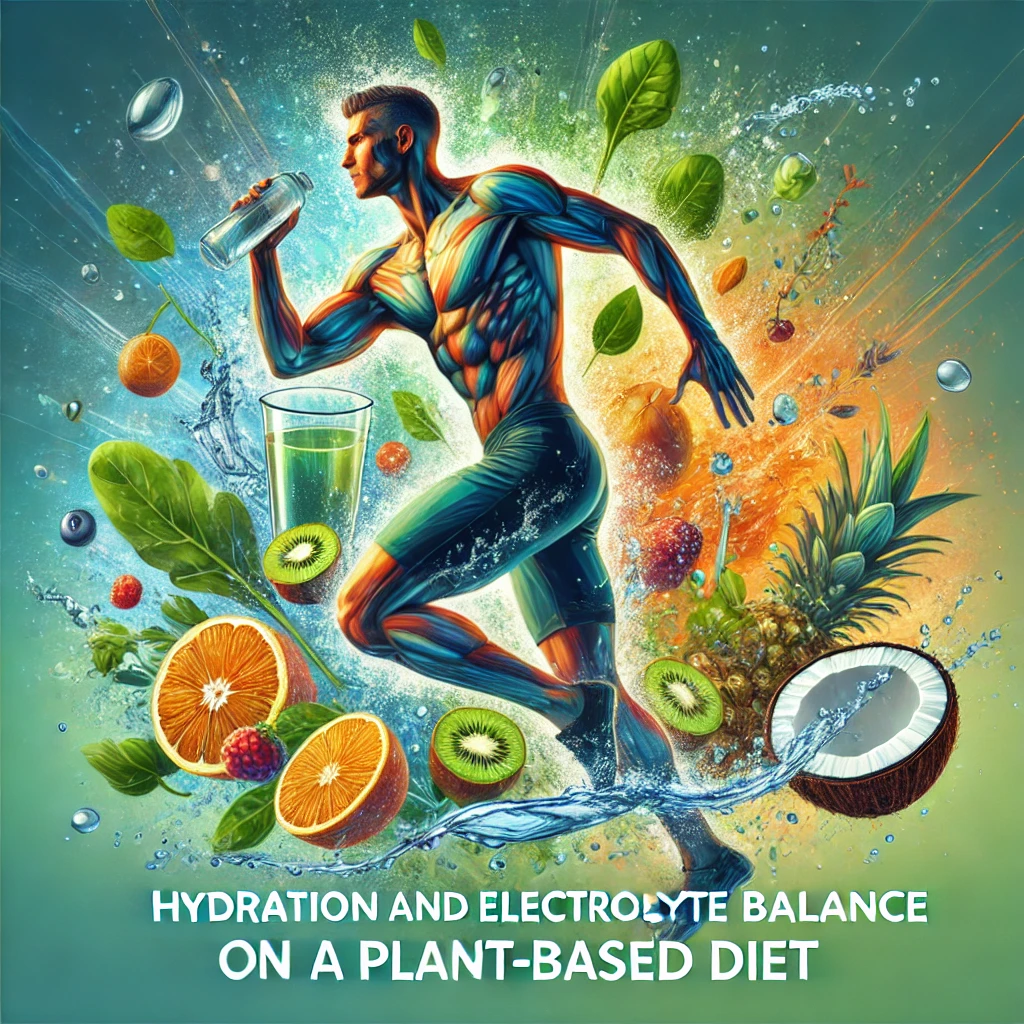PLANT powered Athletes

Staying hydrated is crucial for everyone, but it’s especially vital for athletes who push their bodies to the limit. For those following a plant-based diet, maintaining proper hydration and electrolyte balance can sometimes present unique challenges. In this blog, we’ll explore the importance of hydration, how to maintain electrolyte balance, and how a plant-based diet can support both.
Hydration plays a pivotal role in maintaining overall health, supporting bodily functions such as regulating body temperature, transporting nutrients, and lubricating joints. For athletes, staying hydrated is even more critical as it directly impacts performance, endurance, and recovery. Dehydration can lead to fatigue, reduced coordination, and increased risk of injury, all of which can derail your training or competition.
Electrolytes are minerals that carry an electrical charge and are essential for numerous bodily functions. Key electrolytes include sodium, potassium, magnesium, calcium, and chloride. These minerals help regulate nerve function, muscle contractions, hydration levels, and pH balance in the blood.
When you sweat during intense exercise, you lose not only water but also electrolytes. If these losses aren’t replenished, you could experience muscle cramps, dizziness, fatigue, or even more serious health issues like hyponatremia (low blood sodium levels).
One of the advantages of a plant-based diet is that many fruits and vegetables are naturally high in water content, which helps with hydration. For example, cucumbers, watermelon, oranges, and strawberries are all excellent sources of hydration. Additionally, many plant-based foods are rich in essential electrolytes:
For plant-powered athletes, staying hydrated and maintaining proper electrolyte balance is crucial for optimal performance and recovery. By focusing on a diet rich in water-dense foods and naturally occurring electrolytes, you can support your body’s needs and keep performing at your best. Remember, hydration is an ongoing process—so keep that water bottle handy and make electrolytes a part of your daily nutrition strategy.